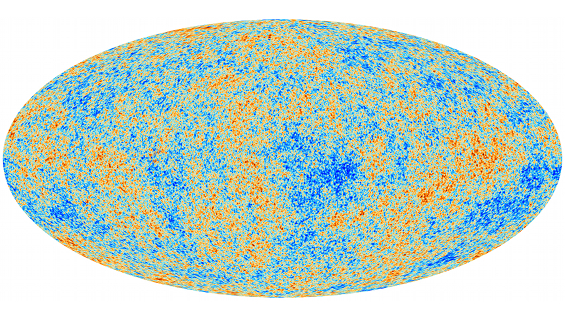Yesterday cosmologists at the University of Cambridge delivered their verdict on a major breakthrough that rocked science this week: the announcement of the BICEP2 project of direct evidence for an inflationary theory of the Universe and the existence of gravity waves (see here for our report). Having caught their breath, the Cambridge scientists carefully studied the results published by BICEP2 and presented their thoughts to a packed lecture theatre at the Institute of Astronomy.
The verdict was positive. "I don't see anything particularly fishy," said cosmologist Anthony Challinor. "There are niggles and there will always be with these kinds of data sets. But it all looks ok to me."

The all sky map of the temperature fluctuations in the CMB, as seen by Planck. (Image credit ESA and the Planck Collaboration)
That's good news for the BICEP2 project, but there may be even more exciting news for cosmology as a whole. Challinor and George Efstathiou, his co-presenter at yesterday's talk, both work on the Planck mission, which uses a space based telescope to map the cosmic microwave background (find out more here). The trouble is that there's tension between Planck's results and those of BICEP2. Planck data concerning temperature fluctuations in the early Universe seem to suggest that there aren't any gravitational waves at all. BICEP2 data, looking at polarisation of light, suggest that there are. So if BICEP's conclusions are correct, physicists may need to look for new physics to explain the discrepancy. The detection of gravity waves is intimately linked to the idea that the Universe experienced a rapid period of accelerated expansion, called inflation, in the distant past, so it's inflationary theories that will come under scrutiny.
"The BICEP2 results have been an absolute triumph for the theory of inflation," says Challinor. "But the problem now is that the simplest models of inflation don't actually seem to fit. It's almost like we know less about inflation than we did before. What we need now is independent confirmation [of the results] from another experiment. If we see that, then it could well mean that we need new physics [to explain the results]." It looks like cosmology is heading for exciting times!